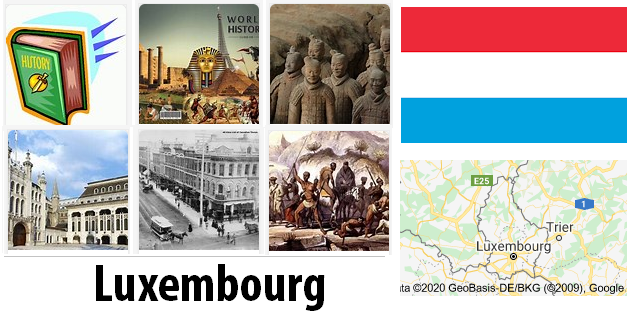Bech, after being 33 years Foreign Minister, left the government team, but the Grand Duchy’s foreign policy continued to be Western, with participation in the Atlantic alliance, the European Union, the economic organizations of the Europe of Six and the Benelux. At the political elections of 1964 the socialists increased the consensus, as had already happened in the municipal elections of the year before. They had achieved parity with the Christian-socials, while the liberals were almost halved. So Premier Werner had to set up a new cabinet in July, made up of Christian social and socialists.
In November of the same year, Grand Duchess Carlotta, after 45 years of reign, passed the scepter to her son Jean, who had already become his representative for three years.
According to Abbreviationfinder, an acronym site which also features history of Luxembourg, the current government remained in office until October 29, 1968, when Werner resigned as a result of being challenged on the social assistance program.
The new elections of December 15 decreed a sharp drop in the socialists and a large success of the liberals, whereby Werner returned to the Christian-social + liberal coalition.
In 1971 the Socialists entered into an alliance pact with the Communists; this resulted in the resignation of six socialist leaders and the Social Democratic Party was born from this split.
On May 26, 1974, eighteen-year-olds participated in the election for the first time. The success of the socialists was resounding and, for the first time, after 50 years of stark dominance, the social-Christians left the government.
Liberal Prime Minister G. Thorn, Foreign Minister of the previous government, operated a liberal-socialist coalition and on June 15 formed a new cabinet. Then on July 4th, he prepared himself in Parliament to illustrate the government program, which included many reforms, but confirming the European-Atlantic policy of the Grand Duchy.
But the international oil crisis halted the country’s economy so the only innovative measure practiced by the Thorn government legislature was the abolition of the death penalty, decreed in May 1979.
But he agreed, together with the unions and entrepreneurs, an austerity plan and the regulation of strikes.
In June 1979 the new elections revived the Christian-social and the liberals, removing a great deal of votes from the socialists. Werner returned to the government with the usual coalition. Its economic program was marked by the most severe liberalism; in April 1982 the escalator was also abolished. This provoked, in the same month, a general strike as had not happened for 40 years.
Meanwhile the socialist opposition was growing, the social democratic party dissolved, other political groups were born, among which the most important was undoubtedly the Ecological Party.
Political elections still took place in 1984 and, this time, the new premier, J. Santer, had to form a new Christian-social + socialist coalition, the only one possible after the result of the vote. In the subsequent 1989 ones, nothing changed in the ruling coalition, even if the three main parties had to register a big drop, due to the advance of both the Ecological Party and the Pensioners’ Party.
Luxembourg, even after having renounced being the permanent seat of the European Parliament, has always continued its policy for the realization of the political and economic unity of the continent.
Santer continued its commitment to encourage banking activities and the contribution of foreign companies in the country. For this reason, in July 1989, rules for the clarity of all financial actions were approved and in April 1993 a law was passed which heavily punished money laundering and promoted the confiscation of all those bank deposits suspected of being the result of illegal operations.
The legislative elections of June 1994 were confirmation of the current political framework and of Santer. However, after a few months he was appointed President of the European Commission, so in January 1995 he was replaced by JC Juncker, also a Christian socialist.
The economic policy he pursued was the same and indeed in May 1996 he reduced corporate income tax in order to increase investment in the industrial sector.
And with this came the elections of June 1999 where the Christian-social confirmed themselves as the first political force in the country.


